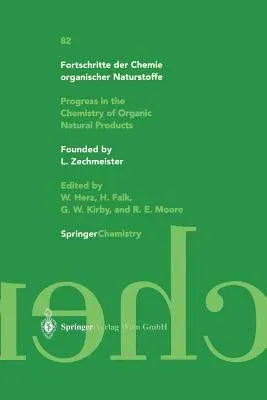Fortschritte Der Chemie Organischer Naturstoffe / Progress in the Chemistry of Organic Natural Products (Softcover Reprint of the Original 1st 2001)Paperback - Softcover Reprint of the Original 1st 2001, 20 November 2013

Qty
1
Turbo
Ships in 2 - 3 days
In Stock
Free Delivery
Cash on Delivery
15 Days
Free Returns
Secure Checkout

Part of Series
Fortschritte Der Chemie Organischer Naturstoffe Progress in
Print Length
296 pages
Language
English
Publisher
Springer
Date Published
20 Nov 2013
ISBN-10
3709172721
ISBN-13
9783709172728
Description
Product Details
Book Edition:
Softcover Reprint of the Original 1st 2001
Book Format:
Paperback
Country of Origin:
NL
Date Published:
20 November 2013
Dimensions:
23.39 x
15.6 x
1.65 cm
ISBN-10:
3709172721
ISBN-13:
9783709172728
Language:
English
Location:
Vienna
Pages:
296
Publisher:
Weight:
435.45 gm